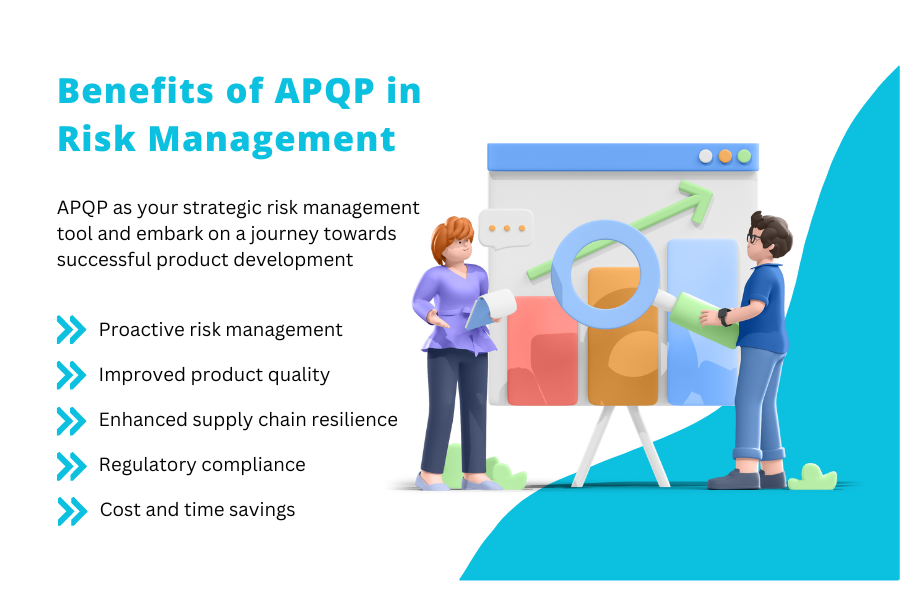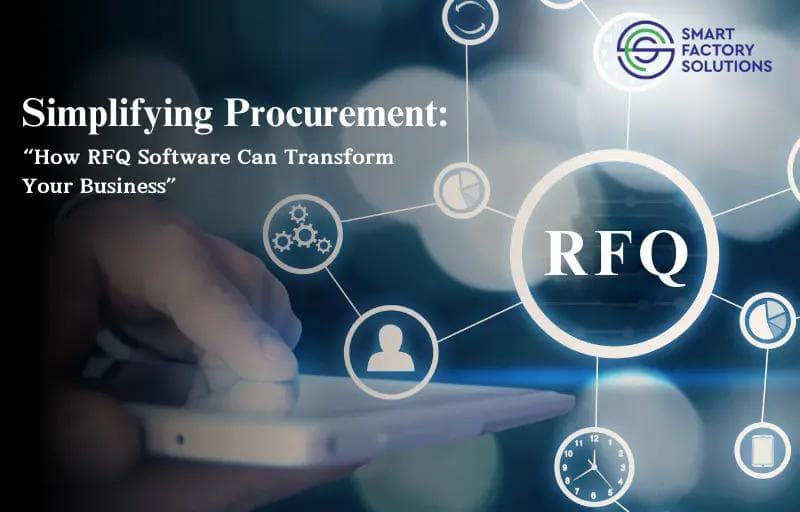Back
Risk Management 101: Mitigating Product Development Risks with APQP

In the world of product development, risks are inevitable. From design flaws to supply chain disruptions, numerous factors can jeopardize the success of a new product. That's where Advanced Product Quality Planning (APQP) steps in, offering a robust framework for effectively managing and mitigating risks throughout the product development process. In this blog post, we will explore the fundamentals of risk management with APQP and how it can help your company navigate potential pitfalls with confidence.
Understanding Product Development Risks:
Before delving into the role of APQP in risk management, let's first understand the common risks that companies face during product development. These risks can include:
- Design and engineering risks: Uncertainties associated with product design, functionality, and performance.
- Supply chain risks: Challenges related to sourcing materials, components, and suppliers.
- Production risks: Issues that may arise during manufacturing, assembly, and quality control.
- Regulatory and compliance risks: Non-compliance with industry standards, regulations, and legal requirements.
- Market risks: Factors impacting product demand, competitive landscape, and market dynamics.
Mitigating Risks with APQP:
APQP provides a systematic approach to identify, assess, and mitigate risks at each stage of the product development process. Let's explore how APQP can help your company effectively manage these risks:
- Early identification: APQP encourages early risk identification by conducting thorough feasibility studies and risk assessments during the planning phase. This enables proactive risk mitigation strategies rather than reactive measures.
- Robust design processes: APQP emphasizes design verification and validation, ensuring that potential design risks are addressed and resolved before moving forward. This minimizes the chances of costly design changes during later stages.
- Supplier collaboration: APQP promotes close collaboration with suppliers, enabling early involvement and assessment of their capabilities. This helps in identifying potential supply chain risks and implementing contingency plans to mitigate them.
- Process control: APQP emphasizes robust process control methodologies, including Failure Mode and Effects Analysis (FMEA) and Control Plans. These tools ensure that risks are identified, quantified, and addressed through effective process controls.
- Continuous improvement: APQP encourages a culture of continuous improvement by implementing feedback loops, corrective actions, and lessons learned. This ensures that risks are constantly monitored and addressed throughout the product lifecycle.
Benefits of APQP in Risk Management:
By incorporating APQP into your product development process, your company can enjoy several benefits in mitigating risks:
- Proactive risk management: APQP enables your team to identify risks early and take preventive measures, reducing the likelihood of costly setbacks.
- Improved product quality: By addressing potential risks during the design and development phases, APQP helps enhance product quality and customer satisfaction.
- Enhanced supply chain resilience: Collaborative efforts with suppliers through APQP result in a more robust and resilient supply chain, minimizing disruptions.
- Regulatory compliance: APQP ensures adherence to industry regulations and standards, reducing compliance-related risks.
- Cost and time savings: By reducing the occurrence of design changes, rework, and delays, APQP helps optimize costs and shorten the product development cycle.
Risk management is a crucial aspect of successful product development, and APQP provides a structured approach to identify, assess, and mitigate risks effectively. By integrating APQP into your company's processes, you can proactively manage risks, improve product quality, enhance supply chain resilience, ensure regulatory compliance, and achieve cost and time savings. Embrace APQP as your strategic risk management tool and embark on a journey toward successful product development.
If you want to learn more about how APQP can transform your risk management practices, get in touch with us today!



